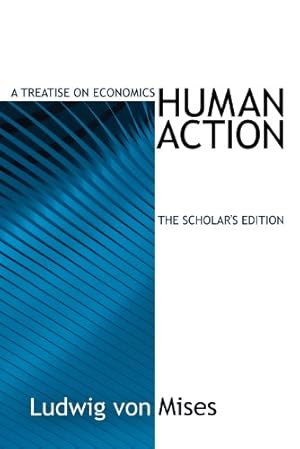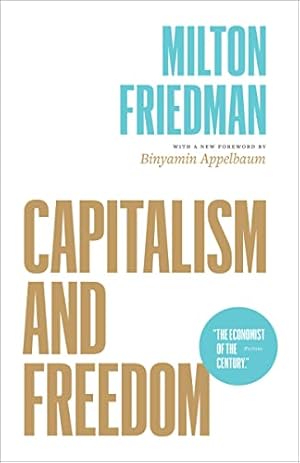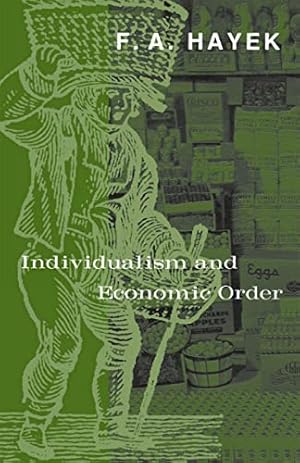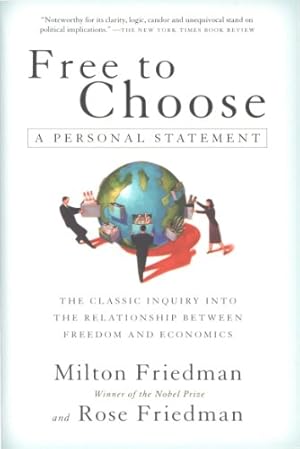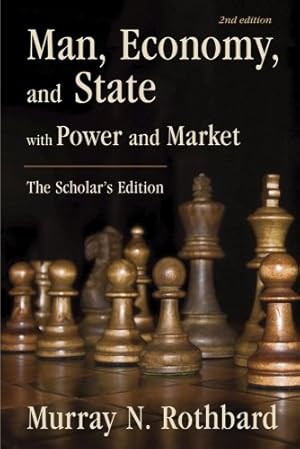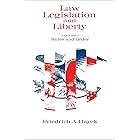Learn more
These promotions will be applied to this item:
Some promotions may be combined; others are not eligible to be combined with other offers. For details, please see the Terms & Conditions associated with these promotions.
- Highlight, take notes, and search in the book
- In this edition, page numbers are just like the physical edition
Your Memberships & Subscriptions

Download the free Kindle app and start reading Kindle books instantly on your smartphone, tablet, or computer - no Kindle device required.
Read instantly on your browser with Kindle for Web.
Using your mobile phone camera - scan the code below and download the Kindle app.

Law, Legislation and Liberty, Volume 3: The Political Order of a Free People Kindle Edition
- ISBN-13978-0226321264
- PublisherThe University of Chicago Press
- Publication dateMarch 21, 2011
- LanguageEnglish
- File size2.6 MB
Kindle E-Readers
- Kindle Paperwhite
- Kindle Paperwhite (5th Generation)
- Kindle Voyage
- Kindle Oasis (9th Generation)
- Kindle Paperwhite (12th Generation)
- All new Kindle paperwhite
- Kindle Paperwhite (11th Generation)
- Kindle (10th Generation)
- Kindle
- Kindle Paperwhite (10th Generation)
- Kindle (11th Generation, 2024 Release)
- All New Kindle E-reader (11th Generation)
- Kindle Scribe, 1st generation (2024 release)
- Kindle Scribe (1st Generation)
- All New Kindle E-reader
- Kindle Oasis (10th Generation)
- Kindle Oasis
- Kindle Touch
Fire Tablets
Shop this series
See full series- Kindle Price:$47.33By placing your order, you're purchasing a license to the content and you agree to the Kindle Store Terms of Use.
Shop this series
This option includes 3 books.
Customers also bought or read
- The Constitution of Liberty: The Definitive Edition (The Collected Works of F. A. Hayek Book 1)
 Kindle Edition$18.35$18.35
Kindle Edition$18.35$18.35 - The Fatal Conceit: The Errors of Socialism (The Collected Works of F. A. Hayek Book 1)
 Kindle Edition$9.99$9.99
Kindle Edition$9.99$9.99 - The Origins of Political Order: From Prehuman Times to the French Revolution
 Kindle Edition$12.99$12.99
Kindle Edition$12.99$12.99 - The Extended Phenotype: The Long Reach of the Gene (Oxford Landmark Science)
 Kindle Edition$8.79$8.79
Kindle Edition$8.79$8.79 - The Struggle for Liberty: A Libertarian History of Political Thought
 Just releasedKindle Edition$3.99$3.99
Just releasedKindle Edition$3.99$3.99
Customers who bought this item also bought
Editorial Reviews
From the Back Cover
About the Author
F. A. Hayek (1899–1992), recipient of the Presidential Medal of Freedom in 1991 and co-winner of the Nobel Prize in Economics in 1974, was a pioneer in monetary theory and a leading proponent of classical liberalism in the twentieth century. He taught at the University of Vienna, University of London, University of Chicago, and University of Freiburg.
Product details
- ASIN : B009GJQEB0
- Publisher : The University of Chicago Press (March 21, 2011)
- Publication date : March 21, 2011
- Language : English
- File size : 2.6 MB
- Text-to-Speech : Enabled
- Screen Reader : Supported
- Enhanced typesetting : Enabled
- X-Ray : Not Enabled
- Word Wise : Enabled
- Print length : 262 pages
- Best Sellers Rank: #692,717 in Kindle Store (See Top 100 in Kindle Store)
- #411 in Economic Policy & Development (Kindle Store)
- #414 in Government & Business
- #823 in Political Economy
- Customer Reviews:
About the author

Friedrich August Hayek (1899–1992), recipient of the Medal of Freedom in 1991 and co-winner of the Nobel Memorial Prize in Economics in 1974, was a pioneer in monetary theory and the principal proponent of libertarianism in the twentieth century. He taught at the University of London, the University of Chicago, and the University of Freiburg. His influence on the economic policies in capitalist countries has been profound, especially during the Reagan administration in the U.S. and the Thatcher government in the U.K.
Customer reviews
- 5 star4 star3 star2 star1 star5 star87%10%0%0%3%87%
- 5 star4 star3 star2 star1 star4 star87%10%0%0%3%10%
- 5 star4 star3 star2 star1 star3 star87%10%0%0%3%0%
- 5 star4 star3 star2 star1 star2 star87%10%0%0%3%0%
- 5 star4 star3 star2 star1 star1 star87%10%0%0%3%3%
Customer Reviews, including Product Star Ratings help customers to learn more about the product and decide whether it is the right product for them.
To calculate the overall star rating and percentage breakdown by star, we don’t use a simple average. Instead, our system considers things like how recent a review is and if the reviewer bought the item on Amazon. It also analyzed reviews to verify trustworthiness.
Learn more how customers reviews work on AmazonTop reviews from the United States
There was a problem filtering reviews. Please reload the page.
- Reviewed in the United States on December 31, 2019Great product!
- Reviewed in the United States on November 13, 2016Hayek is a great thinker and writer. These are crucial ideas that must be known
- Reviewed in the United States on December 17, 2014A master work of the most important part of the classical-liberal tradition, the Austrian school of economics.
- Reviewed in the United States on December 9, 2016Great, all as promised.
- Reviewed in the United States on April 14, 2008In this third and final volume of Law, Liberty, and Legislation Hayek makes his case for a classical liberal constitutional order. True liberalism is the philosophy of free trade and association, and limited government. The modern corrupted version of liberalism stems from a host of fallacies and misconceptions. The Law Liberty and Legislation trilogy was intended to complete the case that Hayek made for classical liberalism in The Constitution of Liberty. This trilogy combines with the Constitution of Liberty to make a powerful case for strictly limited government and free enterprise. You should read The Constitution of Liberty before starting this trilogy, but be sure to read both.
I first became familiar with the ideas in this book in James Buchanan's class on Constitutional Political Economy. This was one of the more intruiging sections of this class. While this book has its critics, it derives from sound reasoning and plausible arguments. While the Law, Liberty, and Legislation trilogy is important in its own right, these books do not stand alone well. Welfare state liberals will find it naïve, even utopian. Hayek makes his case for the legal order of free markets without really explaining why free markets are superior to state controlled systems. Skeptics must refer to Hayek's "Individualism and Economic Order" to get a more detailed explanation of why free markets outperform government regulated systems. Better still, read "Human Action" by von Mises, if you can find the time to wade through it.
- Reviewed in the United States on December 17, 2004Volume 3 of Law, Legislation, and Liberty is in part an attempt at identifying the reasons why, in Hayek's opinion, the principles of liberty he articulated in The Constitution of Liberty do not find greater subscription. Majoritarian democracy is not inherently just, since it is based on interests rather than justice. The majoritarian democratic system consists of people each pursuing their own interests: citizens want spending programs with others paying for them, elected officials generally want to be reelected, government workers prefer large over small government in order to enhance job security. The result is an aggregation of special interests, and not even the general, or common interest, let alone justice. The laws that end up being enacted are intended to serve specific administrative purposes rather than general principles.
With a system of progressive taxation, the aggregate tax burden is no longer felt by the entire population. People end up exerting political pressure for expenditures for which they believe others will pay. In such a system, any normal type of cost-benefit analysis of government programs disappears. The inevitable result is an ever-growing government sector.
The basis of the book is straight public choice theory (pp. 13-17 would make a splendid concise introduction to the field). Even a legislature elected by a democratic majority needs to have constitutional restrictions placed upon it, lest it become a form of tyranny. Hayek proposes "a model constitution" that attempts to rectify some of the shortcomings inherent in the existing democratic system. Laws should be general not specific. They should be about principles rather than benefits, i.e. they should protect citizens' life, safeguard their liberty, and help create an environment in which they are free to engage in the pursuit of happiness. Laws should not discriminate between different individuals or groups, not even based on their wealth or income. Laws passed must apply to everyone, including those who pass the laws, i.e. the legislature. This also goes for taxation: the burden of taxation is to be felt by all who benefit from the existence of government.
Law, Legislation, and Liberty was intended as a sequel to The Constitution of Liberty, in that Hayek wrote it to "fill in the gaps" that he felt existed in his argument in that earlier work. He wrote and published Law, Legislation, and Liberty on and off over a time-span of approximately 15 years (early-mid 1960 to mid-late 1970s), which were in part interrupted by ill health. Hayek admits that the result is at times repetitive and lacking in organization. The reason why he did not go through the effort of redoing the entire work upon completion is because he thought he might at that rate never finish it (he was 80 years old by the time volume 3 was published).
There are still plenty of great insights, which Hayek argues persuasively and in doing so manages to portray as common sense. There are also plenty of flashes of that true rhetorical brilliance characteristic of Hayek that can make his writings such a feast to the ear and mind. On the downside, however, these rhetorical gems are hidden in a large volume of pages that at times do indeed seem tedious, repetitive, and unorganized, unlike with The Constitution of Liberty, where they literally seem to jump off the page at you. All in all, read The Constitution of Liberty first, as Hayek himself suggests. And if you're not up for reading the approximately 500 pages that make up the complete Law, Legislation, and Liberty, two chapters (30 pages total) in the book The Essence of Hayek make for a comprehensive summary exposition of the ideas in the entire trilogy ("Principles of a Liberal Social Order", ch. 20 in The Essence of Hayek, covers vols. 1-2, and "Whither Democracy?", ch. 19, covers vol. 3).
-
Reviewed in the United States on May 18, 2000¿Por qué esta obra es tan importante y el autor, uno de los más serios de este siglo? Porque se trata de una comprension cabal del funcionamiento de nuestra civilización occidental. El libro (los tres volúmenes)es una desmitificación de ciertos conceptos harto conocidos, de clara tendencia socialista, a través de los cuales se ha pretendido transformar sociedades enteras. El concepto de justicia social es uno de ellos, en virtud del cuál se han encarado acciones políticas con resultados conocidos por todos. Esta obra de Hayek es la obra de alguien que ha entendido profundamente al ser humano y su sociedad, y que ha comprendido que es un estado de libertad su ámbito natural. La teoría de la Evolución, parece confirmarle esto al autor. De todos modos, uno se encontrará con grandes argumentos y exposiciones a partir de los cuáles, si es que todavía no se ha convencido de las bondades del liberalismo; tendrá un gran motivo para empezar a hacerlo.
- Reviewed in the United States on May 19, 2006Neoliberalism was born on September 11, 1973, when a US-backed military coup murdered the democratically elected President of Chile and ushered in the tyranny of General Pinochet who murdered and tortured thousands, closed parliament, and outlawed political parties and trade unions. If that doesn't give you pause about the compatibility of neoliberalism and democracy, read this book.
In Hayek's model of an ideal constitution each citizen is given one vote per lifetime when they reach the age of 45 (page 113). Then, Hayek decides that's probably too generous, and calls for an "indirect method of election" where the legislature would appoint regional delegates who would appoint new legislators, without any popular vote at all (page 114).
Neoliberals hate democracy, in both theory and practice, and are much more comfortable with an oligarchy.









